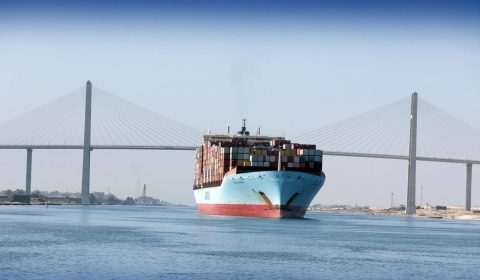
UNCTAD: Geopolitics, attacks, climate change compound global trade crisis
Photo Suez Canal Authority
The United Nations Conference on Trade and Development (UNCTAD) has expressed serious concerns regarding the increasing disruptions to global trade. UNCTAD has stated that a complex crisis affecting vital trade routes has arisen due to a combination of factors. Recent attacks on ships in the Red Sea, geopolitical tensions affecting shipping in the Black Sea, and the impacts of climate change on the Panama Canal have all contributed to the crisis.
Want to read more?
You have read all of your free premium articles for this month. Please become a subscriber to keep reading.
Subscribe now!
Take advantage of our exclusive offer to get full access to all premium content.




